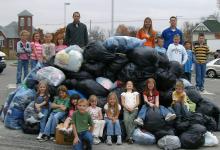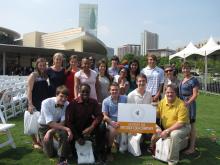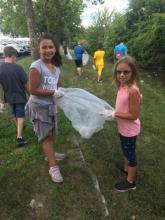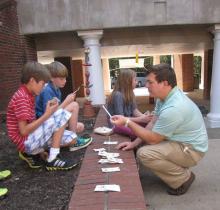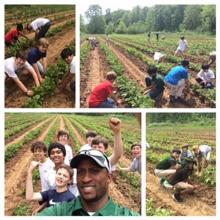To create student awareness about philanthropy in daily life throughout the world using a variety of topics and sources.
Filter by subjects:
Filter by grades:
Filter by audience:
Filter by issue area:
Filter by content type:
Filter by resource type:
resource search
The young people define philanthropy and identify philanthropic activities.
The purpose of this lesson is to demonstrate that being in a group (or community) requires cooperation, working together, getting along, and resolving conflicts. The activity enables the children to accomplish this while having fun at the same time.
This lesson will introduce the concept of tikkun olam and teach of its importance. It will show youth that everyone has the ability to do tikkun olam, and that it can be accomplished in a variety of ways.
Historic Roots
In this mini-course, we learn what student activism looks like, why it is important to teach the knowledge and skills of social action, and ways to include activism in practice that gives students more purpose and ownership in their learning and volunteerism.
Gain knowledge, skills, and approaches to help young people understand issues and resources in their communities so that they can make informed, impactful decisions about how they will contribute their time, talent and treasure.
Raising children includes instilling values and habits that help young people grow into caring and productive members of society. Children learn philanthropic behavior and habits from family, faith-based practice, school, and other community influences. Throughout this course you will learn some of the theory, concepts, and practices that guide young people to be giving and empathetic adults.
This Mini-Course provides a background for teaching the Urban EdVenture course or for anyone introducing the concepts of philanthropy, leadership, and teambuilding to youth. Gain knowledge, skills, and approaches to provide youth with a basic understanding of philanthropy, nonprofit organizations, and the needs of their community.
This Mini-Course provides a background for teaching the “Food for Thought” Middle School service-learning unit for the seventh grade. The "Food for Thought" unit covers how food is grown and harvested, the challenges of meeting the basic need of food, and the issue of food insecurity in the world. The multi-disciplinary 3-4 week curriculum is available for free on Learning to Give.
